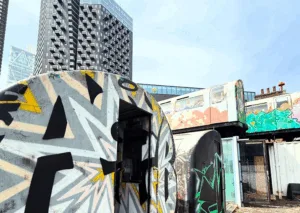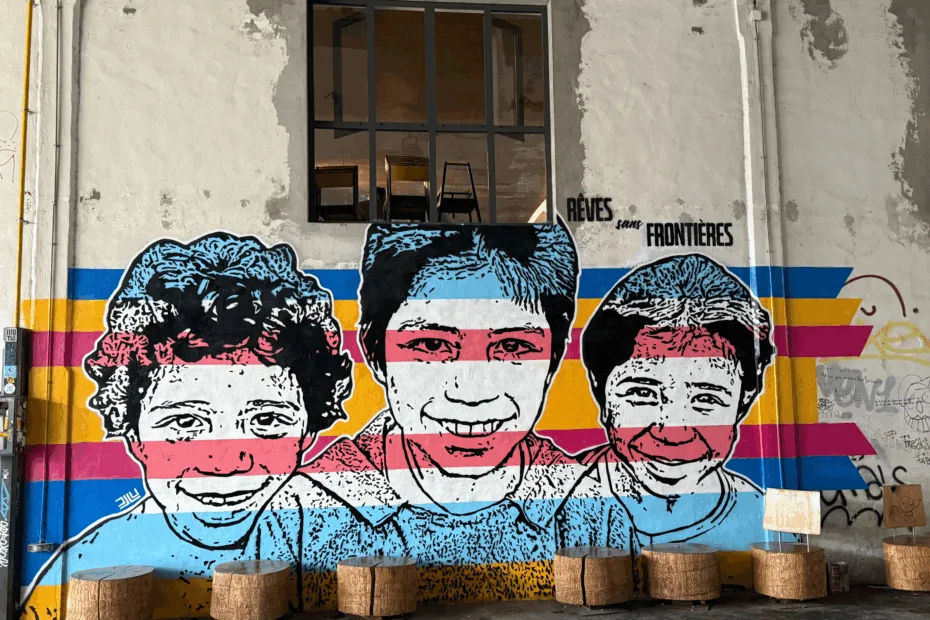Marta Foresti, Chair of the Global Creative Economy Council (GCEC)
I am starting my tenure as the Chair of the Global Creative Economy Council (GCEC), a British Council and Creative PEC partnership, with as much as a sense of duty as one of wonder. Duty because now more than ever it is essential to play our part in showing, not just telling, the value of international cooperation, when the very essence of cross-border collaboration is so severely undermined. And wonder because there is so much of value and beauty that the GCEC can unleash.
I speak from the heart: I have chosen to work on and in the creative economy, collaborating with creatives and creative industries after a lifetime, and an illustrious career, as a senior leader in international relations and development policies, inside and outside of government and international organisations. In the main, this ‘old’ world of mine at best overlooks and at times ignores the creative economy, because it does not recognise, or it simply underestimates its value. I know this, from experience: for a long time, as a scholar, advisor and policy expert working on global governance, sustainability and global migration, I assumed that culture was either something I consumed, largely in my free time, or something useful and valuable but only to communicate the knowledge that experts (like me!) would create through other means.
Yet culture really matters, as those of us working in the sector are well aware. The size of the global creative economy is significant, and we ignore it at our peril. According to UN estimates, the global creative economy revenue is $4.3 trillion and creative Industries account for nearly 6.2% of global employment. About half of these workers are women, and many are more young people.
Creative industries also matter at the regional and local level, with significant potential in emerging markets. By 2030, Africa is projected to produce up to 10% of global exports of creative goods, valued at around $200 billion (or 4% of Africa’s GDP), and could create more than 20 million work opportunities, with significant potential for economic growth. Institutions like Afreximbank and the International Finance Corporation are looking to ramp up investments, and so are many private investors, including from the diaspora.

Global cities are the hub of the creative economy: in Lagos Nigeria, the film industry employs, directly or indirectly, over one million people and contributes $7.2 billion towards Nigeria’s GDP, according to the IMF. In Berlin, Germany, the creative industries account for €7.8 billion, or 8.5%, of the city’s GVA.
In my own experience, however impressive these numbers are, they only go so far. It was only when I experienced first-hand the power of design to create new knowledge and narratives, or the ways in which local innovation and ingenuity can bring back in circulation textile waste, that I realised the potential of the so called ‘orange economy’ to shift, in fact make (better) policy. And I do not mean (just) cultural policy. I mean all kinds of policies, from industrial strategies to new trade agreements and the green transition, the creative economy can play a key role to enhance global prosperity, at the heart of global economic policy making. And this is my vision for the GCEC: to go ‘beyond culture’.
The GCEC is uniquely positioned to leverage this potential. As a global network of local leaders spanning all sectors of the creative economy, from museums and libraries to gaming, urbanisation and impact investing, we have a unique opportunity and responsibility to demonstrate with actions that creative industries are not a ‘nice to have’ or a luxury, but essential instruments to addressing global challenges and leveraging opportunities, from the climate crisis to trade and labour mobility, AI and beyond.

To achieve this, we will need to make strategic choices and take very concrete action, making the most of our collective power to engage with and shape global and local policy exchanges, sharing our expertise and knowledge and crucially reaching out to our extensive networks across borders and disciplines. It will be crucial to build new coalitions and alliances, beyond the cultural sector and the creative industries we are all part of, engaging with global and local actors working towards a greener, more peaceful and prosperous future.
Over the next few months we plan to individually and collectively engage in key global events and moments, from COP 30 in Belem to the all important South African G20. At our annual meeting in Jakarta, we will engage with key policymakers and practitioners in the creative economy in the Association of Southeast Asian Nations (ASEAN) but also with those responsible for relocating this bustling but rapidly sinking city. We look forward to discussing how the creative economy can help make this challenging move a successful one. Far from being the experience of Indonesia alone, many island states represented on the Council confront similar challenges and can share valuable lessons.
I am truly looking forward to working with all GCEC members in the coming months: it is often said that global problems need local solutions. We are determined to play our part bringing this vision to life.
Main Image: Friche La Belle Mai, Marseille (2025) Credit: Marta Foresti
